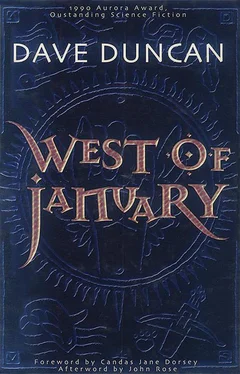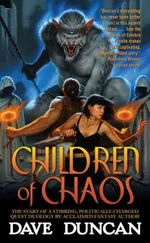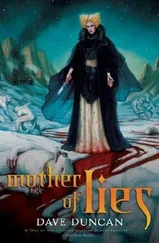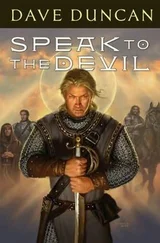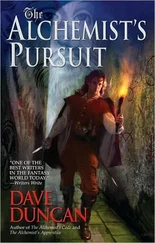Where were we, then? I inquired.
“The borderland.” He waved a hand. “North of the forest, south of the desert. Trader country, this!”
“Take it from the beginning,” I said humbly. So he did.
The world is born anew at Dawn, as Orange had once told me, but a couple of months to the east its childhood excesses of flood and storm come to an end. Plants colonize in the jumbled mud and rock and loess as the sun climbs higher in the sky. A fuzzy adolescence sets in, with trees and shrubs maturing into woodland and then nigh-impenetrable forest. In Wednesday, though, the sun climbs too quickly, choking off the tree growth and leaving the lonely grasslands I had known in my youth. High Summer eventually destroys even the grass, so that most of late Wednesday is desert. The hot desert is well named and barren, but the cool desert can be very fertile in spots, and it is inhabited.
The great forests are found in late Tuesday and Thursday, flanking the deserts. The borderlands between are highways for traders, with water and forage for their livestock, with a passable terrain and a mainly bearable climate. It was eastward through this country that Misi and Pula were driving their train, the path twisting incessantly, taking ten or twenty steps upon the ground to achieve one upon our path, wending up and down hills, flirting with desert and jungle, skirting rock and swamp. The borderlands are well settled, mainly by farmers of various types, and visits to their settlements added more meanderings to our route.
Finally Jat yawned. “Ask Lon. He’s been everywhere from the edge of Dawn all the way to Heaven.”
Later I did ask Lon. He told me of the mud that had barred his wagon’s way westward into Dawn, and also of the Dying Lands in the east, beyond which Heaven lurks amid the blizzards of Dusk. I did not want to discuss Heaven with the traders, though.
“Where are you heading now?” I asked Jat.
But of course that was a matter that Jat was reluctant to discuss with me. “To and fro,” he said, waving a lazy hand. “Borderlands give the best trading.”
Neither of us was aware that Vernier was about to spring yet another of its traps, although a fairly harmless one. Angels had been passing the word for some time, and Jat’s ignorance showed how reluctant traders are to share information among themselves.
The conversation had died of too much caution. The wagon paused and then lurched. Misi belched. She twisted her thick torso around so that she could look at me.
“Where do you want to go, Knobil?” she asked.
Misi had been listening to the talk, had understood every word, and had then asked outright the one question I preferred not to answer, but by then I was so completely convinced of her stupidity that I did not notice when the mask briefly slipped.
“Will I ever walk again?” I countered.
“Yes. Maybe not well, though.”
I eyed Jat, whom I still thought of as the brains of the partnership. “When I get these splints off, would you teach me to ride?”
“Of course, Knobil!” If he meant that, he had an exceptionally slow horse in mind for me. “Be glad to.”
“Then what, Knobil?” Misi asked. “Where will you ride to? Heaven?”
“Why should I do that?” I retorted, still not realizing that I was crossing wits with the woman I believed to be a mental snail. “I have no desire at all to go to Heaven!” and there, at least, I was speaking the truth.
“Thought you’d want to tell the angels about the slaves in the mine,” Jat remarked blandly.
This was dangerous ground. Whatever they said, these wily traders were harboring me only because they could smell profit—somewhere, somehow—and Hrarrh had not sent me on this journey out of benevolence. Angels would be able to give me advice and possibly rescue. And, yes, they would certainly ask me about slavery.
When I had denounced Anubyl for killing my mother, Violet had ignored my protest. Wiser now, I knew how angels defined violence. They would intervene only if the violence was between cultures. A herdman beating his women was not breaking the rules of his own group, and angels had already far too much to do without trying to change social patterns. But slavery crossed boundaries, and the angels would take action if they could.
Yes, the ants owned slaves. They bought them from traders. Heaven was powerless against a mine full of ants, but a trader caravan was vulnerable.
So I met that rapier gaze as steadily as I could. “I have a very low opinion of angels, Jat, very low!” Again I was being truthful. “You ever trade in slaves, Jat?”
Amused, he shook his head. “Not so far. It’s a mean way to make a living. But if I’m ever crossing the grasslands and a starving loner crawls up to me—I suppose I’d feed him. Then he’d owe me, wouldn’t he? It would be like having a plump doe drop dead on your campfire. Hard to refuse.”
“Let him starve! It would be kinder. But as far as I know, there are no slaves in your train nor in any of the others. If an angel comes by, I won’t make trouble. I’m very grateful to all of you. I won’t start cuddling up to angels.”
The little man nodded in unusual silence. I did have a strong suspicion, though, that one of the other wagons held slaves—I had seen some youths being exercised once, in the far distance. And I knew for certain that one of Misi’s storage chests had held a gun, because I had snooped, early in my recuperation. It had not been there the next time I looked, but it would be around somewhere. Angels would certainly want to know about that gun and where it had come from.
“So?” Misi said. “Not Heaven. Where do you want to go, Knobil?”
I had not been long enough out of the mine for my wits to have healed. I knew I must return to the grasslands, and I still vaguely believed that that was because I had business with the Heavenly Father there—but I also knew that I no longer believed in any of the myriad gods and goddesses I had heard worshipped in the slave compound. My logic needed more work, but my intent was clear. Back to scenes of my childhood I must go.
“If I can some how earn a horse of my own, then I shall head for the grasslands,” I said. “Being a seaman on the March Ocean was pleasant. The cold seas of Saturday don’t attract me.”
“Be a herdman?” Jat snorted in disbelief.
Misi pouted doughy lips. “That’s no life! They’re animals! You learn to ride and then stay with us! We’ll make a trader of you.”
She turned her attention back to the hippos as if the matter were now settled. Jat grinned at the passing scenery and said nothing. He was perhaps thinking, as I was, of Knobil and Misi as cab partners. My reaction had perhaps shown on my face.
I promised to consider Misi’s suggestion. I was quite sure that Jat had some other end in view for me, but I could do nothing until I got my legs back, except continue my attempts to seduce Misi Nada.
─♦─
In retrospect, that conversation ought to have warned me that I had grievously underestimated Misi. How stubborn the human brain is, how reluctant to change any of its own opinions! I should have seen the evidence. A moron could not have hauled me from death’s gut as Misi had. A moron could not play apothecary and healer to the whole caravan, as Misi did. A moron would certainly not have been allowed to trade with the slashers.
We were now approaching the most fertile part of Vernier, where the inhabitants follow a form of agriculture called slash-and-burn. The women raise crops, harvest them, and then move west to where the men have already cleared new ground. After the planting and its associated rites, the men gradually slip away again westward to start the next clearing. In Heaven I met several slashers, and at least one had obvious trader blood in him. In theory, though, the male traders stayed away from the slasher women’s villages and sent in their own women to bargain. When Misi was chosen for this duty a second time, I at last began to wonder.
Читать дальше
